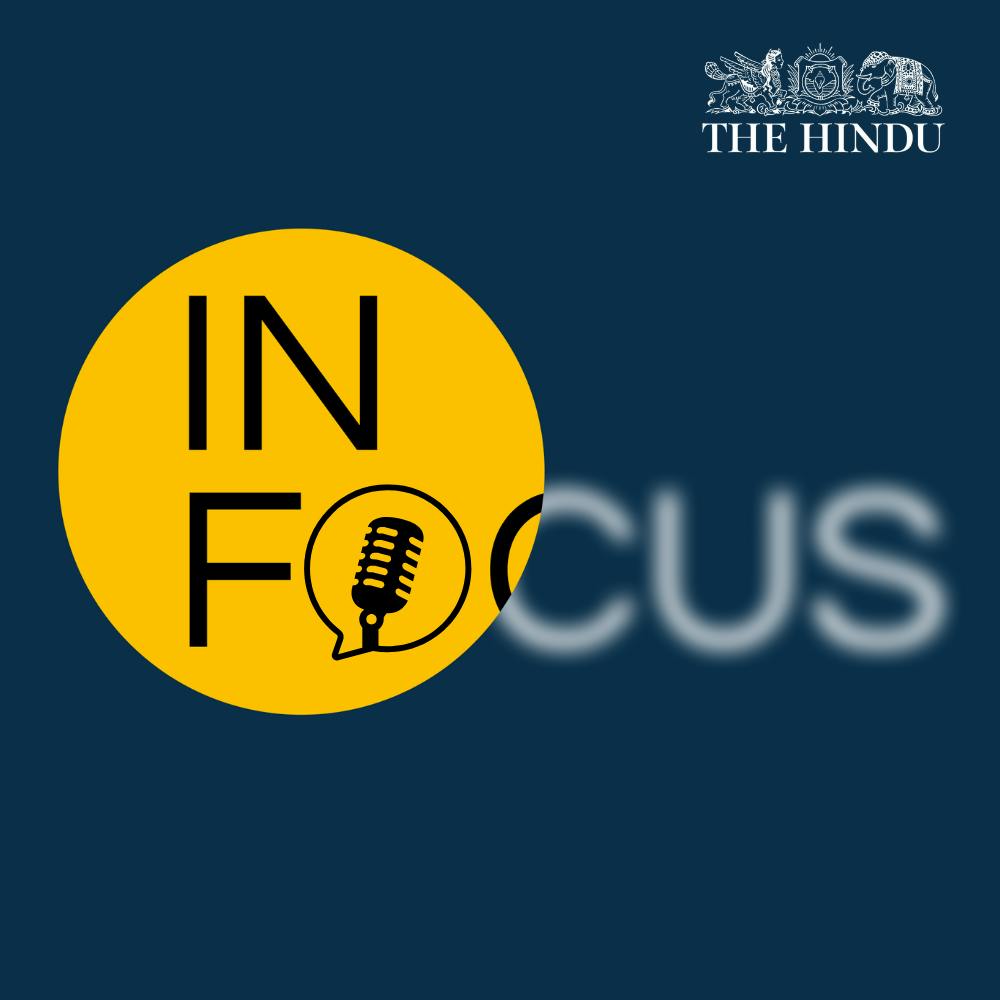

In Focus by The Hindu
The Hindu
A podcast from The Hindu that delves deep into current developments with subject experts, and brings in context, history, perspective and analysis.
Episodes
Mentioned books

9 snips
Jan 20, 2026 • 41min
What Maduro’s capture means for the world
Tariq Ali, a distinguished writer and political activist with deep ties to Latin American politics, shares insights on the recent capture of Venezuelan President Nicolas Maduro. He discusses the historical context of U.S. interventions in the region and critiques the motives behind Trump's administration's actions, particularly concerning oil interests. Ali also highlights media biases affecting public perception, the resilience of Venezuelan resistance, and the broader implications for international politics, especially in relation to China's rising influence.

Jan 19, 2026 • 24min
Jana Nayagan vs. the CBFC: What goes behind censoring 720 hours of film?
Aroon Deep, a journalist and tech correspondent at The Hindu, dives deep into the ongoing controversy surrounding the high-profile film Jana Nayagan. He reveals how the Central Board of Film Certification (CBFC) has modified over 720 hours of film content, often leading to significant censorship issues. Aroon discusses the political implications of last-minute alterations, the economic pressures on producers, and the increasing opacity of CBFC's processes. His insights reveal a troubling trend where creativity is stifled and self-censorship becomes a norm among filmmakers.

12 snips
Jan 17, 2026 • 35min
Why are specific acid attack survivors excluded from disability rights in India?
Madiah Shahjar, a legal advocate from Brave Souls Foundation, discusses the crucial issue of acid attack survivors' rights under India's disability laws. She clarifies the distinction between visible injuries and internal damage from acid ingestion, highlighting how current laws overlook many victims. Madiah shares insights from a recent Supreme Court case advocating for comprehensive protections and discusses the challenges survivors face in certification processes, accessing compensation, and employment barriers, emphasizing the need for legal reforms and NGO support.

10 snips
Jan 16, 2026 • 28min
China’s mega-dam on the Yarlung Tsangpo: How will it affect India?
In this engaging discussion, Samrat Choudhury, a journalist and author with expertise in Northeast India, delves into China's ambitious plans for the world's largest hydropower dam on the Yarlung Tsangpo river. He reveals how the dam's design poses potential flood risks for India while questioning China's claims of minimal impact. The conversation also touches on India's responses, local opposition to dams in Arunachal Pradesh, and the broader implications for the Brahmaputra river system, highlighting ongoing challenges in international water-sharing agreements.

7 snips
Jan 14, 2026 • 24min
Iran protests explained: What’s driving the unrest?
Stanly Johny, International Affairs Editor at The Hindu, delves into the roots of Iran's current protests triggered by severe economic struggles and soaring inflation. He highlights how these protests, initially focused on livelihoods, have escalated into broader political discontent. The conversation examines the impact of renewed U.S. sanctions, the significance of the Grand Bazaar's merchants, and the role of Iran's security forces. Stanly explores the unique convergence of internal and external pressures facing the regime and outlines possible future scenarios for the nation.

Jan 14, 2026 • 24min
Why India struggles with cadaver organ donation
In this discussion, Dr. Amalorpavanathan, a retired vascular surgeon instrumental in establishing Tamil Nadu's cadaver organ donation program, delves into India's organ donation challenges. He highlights the paradox of low cadaver donations despite high willingness. Family consent often overrides individual wishes, complicating the process. The podcast also explores the gender disparity in organ donation, with women donating more but men being the primary recipients. Dr. Amalorpavanathan urges for systemic improvements to streamline donations and enhance public trust.

Jan 13, 2026 • 42min
Is denying bail to Khalid and Imam a departure from judicial precedent?
Renowned Supreme Court advocate Vrinda Grover joins to unpack the recent Supreme Court ruling denying bail to activists Umar Khalid and Sharjeel Imam. She highlights the tension between the constitutional right to liberty and stringent bail regimes under UAPA. Grover critiques the judgment for ignoring key precedents, and warns of the implications for dissent and democracy. She passionately argues against treating protests as terrorism, cautioning that vague legal definitions could allow the state to stifle free speech.

Jan 12, 2026 • 47min
Removal of Maduro: Decoding the latest chapter in US interventionism
Srinivasan Ramani, Senior Associate Editor at The Hindu, dives into the U.S. intervention in Venezuela and the dramatic arrest of Nicolás Maduro. He explores the real motivations behind U.S. actions, suggesting that controlling Venezuelan oil is central to their strategy. Ramani discusses the implications of this intervention for regional stability, including potential targeting of Cuba and the parallels with Iraq. He also highlights how domestic U.S. politics and military-industrial interests have increasingly influenced foreign policy.

11 snips
Jan 10, 2026 • 24min
Indore deaths: What ails the water supply systems in India
Pradip Kalbar, an Associate Professor in Environmental Science at IIT Bombay, dives into the tragic water contamination case in Indore that caused multiple fatalities. He explains the complex workings of urban water systems in India, highlighting issues like leaking sewage and intermittent supply. Kalbar emphasizes the impact of poor governance and maintenance on clean water delivery. He advocates for decentralized solutions, improved regulation, and practical strategies for achieving safe drinking water for all, particularly for vulnerable communities.

Jan 9, 2026 • 32min
Insurance Bill 2025: What’s in it for policyholders?
Shilpa Arora, Co-founder and COO of Insurance Samadhan, sheds light on the recently passed Insurance Bill 2025, a potential game changer for policyholders. She discusses how 100% FDI could enhance affordability and distribution, while also emphasizing the strengthening of the Insurance Regulatory Authority of India. The conversation reveals persistent issues like claim rejections and mis-selling, and highlights the need for better oversight and transparency in the claims process. Arora argues that real consumer benefits hinge on effective implementation of the new regulations.


